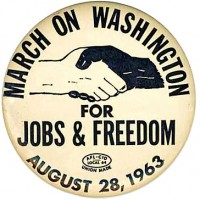Imagine discussions of Toni Morrison’s Beloved in the context of a nation facing ethnic and religious strife, or reading Thoreau and Emerson in the context of a nation struggling with both existential questions and defining for itself concepts of justice and equality. As the leader of an academic institution, I consider this an excellent example of the potential transformative power of the liberal arts, raising questions and generating discussions that both transcend time and place and also brightly illuminate current issues. Regardless of one’s views on the political solutions to Israeli/Palestinian relations, the cultural transformation needed to find peace in the region will require strong academic institutions with free and unfettered exchange of ideas with scholars from around the world. Collaborations among individual scholars and among institutions have the potential to support and nurture this cultural transformation.

On the surface, the problem sounds very simple – measuring the return on investment for a college education, at least in economic terms, is a relatively straightforward calculation. But the desired outcomes of a Kenyon education include preparation for career success. They also include lifelong engagement as an educated citizen; a life enriched by appreciation and knowledge of the arts, humanities, social and natural sciences; and the ability to creatively apply the skills learned at Kenyon to solve problems, to produce new and original work, and to lead in a variety of walks of life. These are not measured by salary alone.

Traditions and ceremonies bring a community together, providing an opportunity to renew our connections to each other, the institution, and our shared values. We certainly did that on Saturday, whether by sharing in collective awe and silence during “Amazing Grace” at the formal ceremony, singing “Kokosing Farewell” in the rain in front of a brightly lit Old Kenyon, or screaming the lyrics of “Hey Jude” en masse in a packed Peirce Hall.

I am very proud of my life accomplishments, not the least of which is becoming president of Kenyon College. A great deal of my success can be attributed to the support I have been given by my family and mentors throughout my career. But, I also owe a tremendous debt to the large numbers of brave men and women who fought for civil rights, many who risked their jobs, their safety, indeed their lives, in order to change the world. On the anniversary of the March on Washington, each of us should take a moment to reflect upon both how much has changed in the past fifty years in the United States as a whole and here on our Hill in Gambier, and how we can all live our lives with the courage, commitment, and determination that characterized the generation of the civil rights movement.

Powerful lessons sometimes arise from simple acts such as getting on a bike and riding farther than you thought you could do; volunteering with hundreds of others to support an important cause; or talking with a man standing on the road with a sign that says “Thank you for saving my wife.”



